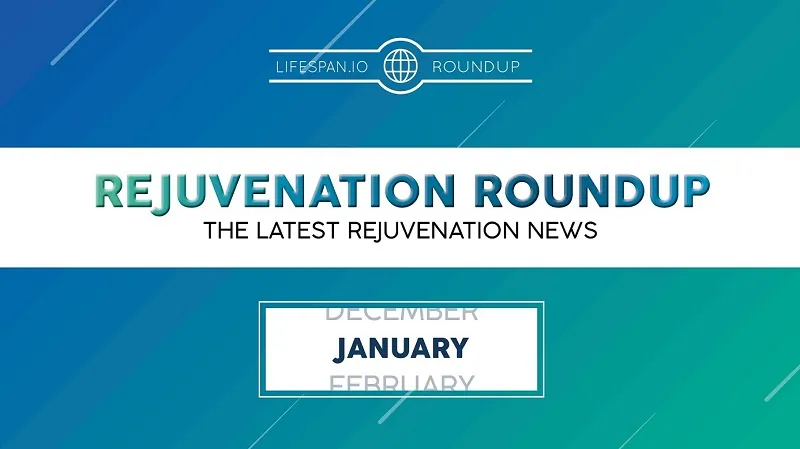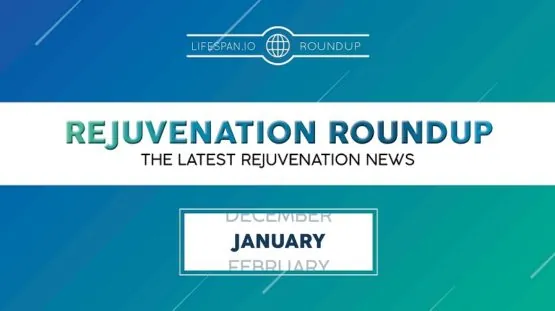As 2023 continues, so does new research into rejuvenation, regeneration, and restoration. Let’s see what’s been done to reverse age-related diseases in January.
Lifespan.io News
Team and activities
 New Year, Same Goal to End Age-Related Diseases: The new year is well underway, and we have been our usual busy selves. Join us for the first editorial of the year, and find out about the awesome things we have been doing for longer, healthier lives.
New Year, Same Goal to End Age-Related Diseases: The new year is well underway, and we have been our usual busy selves. Join us for the first editorial of the year, and find out about the awesome things we have been doing for longer, healthier lives.
Lifespan News
NMN Optimal Dose: This episode focuses on a recent study showing that NMN has positive effects on walking distances and suggests an optimal dose for the supplement of 600 milligrams.
 Mediterranean Diet Against Obesity: In this episode of Lifespan News, Emmett Short discusses the well-known, longevity-associated Mediterreanean diet and how a variant can promote weight loss. The Mediterranean diet, rich in olive oil, vegetables, legumes, fish, and nuts, is widely considered to be one of the most healthy and longevity-friendly diets.
Mediterranean Diet Against Obesity: In this episode of Lifespan News, Emmett Short discusses the well-known, longevity-associated Mediterreanean diet and how a variant can promote weight loss. The Mediterranean diet, rich in olive oil, vegetables, legumes, fish, and nuts, is widely considered to be one of the most healthy and longevity-friendly diets.
Tearing Cells: Emmett Short focuses on a recently published paper in which senescent cells tear off portions of their membranes, leaving them attached to other cells.
Interviews
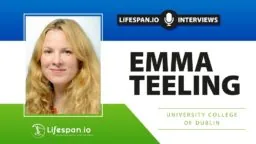 Emma Teeling on What We Can Learn from Bats: Emma Teeling is a professor at University College of Dublin, and her research focuses on bats. In this interview, Emma explains why many bats, despite having tiny body sizes and leading very metabolically demanding lifestyles, are so amazingly long-lived.
Emma Teeling on What We Can Learn from Bats: Emma Teeling is a professor at University College of Dublin, and her research focuses on bats. In this interview, Emma explains why many bats, despite having tiny body sizes and leading very metabolically demanding lifestyles, are so amazingly long-lived.
Aubrey de Grey on LEVF and Robust Mouse Rejuvenation: Dr. Aubrey de Grey is a legend in the longevity field who has been steadfastly promoting the idea of life extension since well before it became mainstream. While with SENS Research Foundation, de Grey made significant contributions to geroscience, and at Longevity Summit Dublin last year, he announced the creation of his new brainchild.
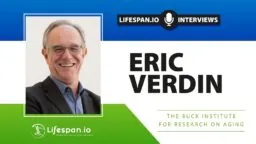 Eric Verdin on the Buck, Nutrition, and Ketosis: Six years ago, Dr. Eric Verdin, already a highly acclaimed veteran geroscientist, was catapulted to the forefront of the field when he agreed to lead the Buck Institute for Research on Aging (or simply “the Buck”), a renowned research institution based in Novato, CA.
Eric Verdin on the Buck, Nutrition, and Ketosis: Six years ago, Dr. Eric Verdin, already a highly acclaimed veteran geroscientist, was catapulted to the forefront of the field when he agreed to lead the Buck Institute for Research on Aging (or simply “the Buck”), a renowned research institution based in Novato, CA.
Rejuvenation Roundup Podcast
Ryan O’Shea of Future Grind hosts this month’s podcast, showcasing the events and research discussed here.
Journal Club
Partial Reprogramming Extends Lifespan in Old Mice: Journal Club has returned yesterday at noon on our Facebook page with host Dr. Oliver Medvedik. We are looking at a preprint this time where partial reprogramming factors were used to reverse some aspects of aging in old mice.
Advocacy and Analysis
 The Hallmarks of Aging’s Original Authors Offer a Fresh View: The year 2023 started with the publication of two remarkable review papers in Cell and Cell Metabolism by researchers addressing the hallmarks of aging and their interplay with the hallmarks of cancer. These papers were authored by the same team that published the original 2013 Hallmarks of Aging paper.
The Hallmarks of Aging’s Original Authors Offer a Fresh View: The year 2023 started with the publication of two remarkable review papers in Cell and Cell Metabolism by researchers addressing the hallmarks of aging and their interplay with the hallmarks of cancer. These papers were authored by the same team that published the original 2013 Hallmarks of Aging paper.
Selfish, Reckless, Satanic: Life Extension in Movies: In the much-awaited sequel to the movie Avatar, there is a passing, peculiar mention of life extension. This mention, as can be expected, is negative.
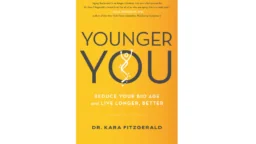 Exploring the Biological Aging Advice in “Younger You”: Dr. Kara Fitzgerald’s new book provides an evidence-based approach to diet and lifestyle that aims to reduce your biological age along with a pragmatic and easily understood primer on the role of epigenetics and aging.
Exploring the Biological Aging Advice in “Younger You”: Dr. Kara Fitzgerald’s new book provides an evidence-based approach to diet and lifestyle that aims to reduce your biological age along with a pragmatic and easily understood primer on the role of epigenetics and aging.
Research Roundup
Novel Longevity Gene Variants Identified in Centenarians: In a study published in International Journal of Molecular Sciences, a team of researchers known for their studies on long-lived individuals has discovered four new genetic loci that partially explain extreme longevity.
 Senescent Cells Harm Muscle Regeneration in Mice: New research published in Nature has shown that senescent cells hamper muscle regeneration through inflammation and fibrosis.
Senescent Cells Harm Muscle Regeneration in Mice: New research published in Nature has shown that senescent cells hamper muscle regeneration through inflammation and fibrosis.
A Single Target Improves Stem Cells in Aged Mice: Researchers publishing in the Nature journal npj Regenerative Medicine have zeroed in on a major reason behind stem cell exhaustion and determined that inhibiting it has significantly rejuvenative effects.
 Silly Walking for Serious Exercise: Researchers have shown that a particular walking style that many people immediately recognize can count as exercise, one of the most effective anti-aging interventions known to humans.
Silly Walking for Serious Exercise: Researchers have shown that a particular walking style that many people immediately recognize can count as exercise, one of the most effective anti-aging interventions known to humans.
Gene Therapy to Induce Epigenetic Reprogramming: A preprint published in bioRxiv by scientists working at Rejuvenate Bio has described how gene therapy that allows for OSKM expression can be used to increase the lifespans of mice.
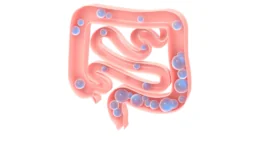 NAD+ Supplement Protects Intestines from Alcohol in Mice: Scientists have shown that the NAD+ precursor nicotinamide riboside (NR) alleviates symptoms of leaky gut caused by ethanol consumption in mice by improving mitochondrial function.
NAD+ Supplement Protects Intestines from Alcohol in Mice: Scientists have shown that the NAD+ precursor nicotinamide riboside (NR) alleviates symptoms of leaky gut caused by ethanol consumption in mice by improving mitochondrial function.
Obesity Shown to Affect Brain Aging in Mice: Research published in Immunity & Ageing has shown that obesity has significant, aging-associated effects on behavior and immunity in the brains of mice.
 David Sinclair: Epigenetic Info Loss Is a Cause of Aging: Published in Cell, a new paper by David Sinclair and his team argues that epigenetic dysregulation in the form of information loss is a major driver of aging, but it can be reversed in vivo by partial cellular reprogramming.
David Sinclair: Epigenetic Info Loss Is a Cause of Aging: Published in Cell, a new paper by David Sinclair and his team argues that epigenetic dysregulation in the form of information loss is a major driver of aging, but it can be reversed in vivo by partial cellular reprogramming.
NMN Alleviates Silicate Lung Injury in Mice: A new paper published in Nutrients shows that the well-known NAD+ precursor NMN alleviates lung injury caused by silicate inhalation in wild-type mice.
 The Microbiome Might Affect Motivation for Exercise: Scientists publishing in Nature have found that compounds produced by some types of gut bacteria can influence dopamine levels in the brain and, as a result, might influence motivation to go on a morning run.
The Microbiome Might Affect Motivation for Exercise: Scientists publishing in Nature have found that compounds produced by some types of gut bacteria can influence dopamine levels in the brain and, as a result, might influence motivation to go on a morning run.
Questioning the Usefulness of Model Organisms: In a new review paper published in GeroScience, the researchers explored the translatability of anti-aging interventions across species and received somewhat alarming results.
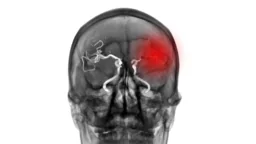 The APOE4 Gene Is Associated With Worse Stroke Outcomes: Researchers publishing in Aging have found that there is a correlation between the Alzheimer’s-associated APOE4 gene and poor outcomes after ischemic stroke.
The APOE4 Gene Is Associated With Worse Stroke Outcomes: Researchers publishing in Aging have found that there is a correlation between the Alzheimer’s-associated APOE4 gene and poor outcomes after ischemic stroke.
Senescent Cells Leave Fragments Attached to Other Cells: In a preprint paper, scientists have reported that senescent cells transiently adhere to neighboring cells, and, upon departure, leave in place large membrane-enclosed fragments of themselves.
 NMN Reduces Metastasis in Difficult Breast Cancer Model: In a new paper published in Nature, scientists have found that raising NAD+ levels via supplementation with nicotinamide mononucleotide (NMN) activates SIRT1 to dampen metastasis in mouse triple negative breast cancer models.
NMN Reduces Metastasis in Difficult Breast Cancer Model: In a new paper published in Nature, scientists have found that raising NAD+ levels via supplementation with nicotinamide mononucleotide (NMN) activates SIRT1 to dampen metastasis in mouse triple negative breast cancer models.
Caloric Restriction Does Not Extend Lifespan in Every Model: In a preprint paper, researchers have evaluated the effect of caloric restriction on two long-lived planarian species in various environments that mimic the stochasticity of the real world.
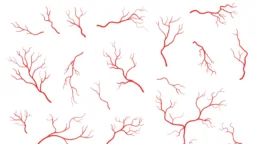 Brain Aging on a Small, Physical Level: A new publication in Nature Aging has explained a great deal about aging of the neurovascular system, showing where and how the brain’s blood supply changes with aging in a mouse model.
Brain Aging on a Small, Physical Level: A new publication in Nature Aging has explained a great deal about aging of the neurovascular system, showing where and how the brain’s blood supply changes with aging in a mouse model.
New Way to Help Aging Cells Produce Collagen: Scientists have demonstrated that extracellular vesicles loaded with mRNA coding for collagen production can be easily produced and delivered into aging fibroblasts in vitro and in vivo, boosting collagen levels and eliminating signs of skin aging in mice.
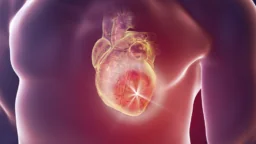 Gene Therapy for Heart Regeneration in Living Animals: Research published in Cell Stem Cell has described how previously unmodified animals have been given regenerative abilities akin to those of zebrafish, restoring their heart muscle after injury.
Gene Therapy for Heart Regeneration in Living Animals: Research published in Cell Stem Cell has described how previously unmodified animals have been given regenerative abilities akin to those of zebrafish, restoring their heart muscle after injury.
Longevity-Associated Allele Protects Heart Function in Mice: Scientists have shown that a longevity-associated variant of the BPIFB4 gene protects cardiovascular health, including when introduced by viral vectors.
Nicotinamide riboside improves muscle mitochondrial biogenesis, satellite cell differentiation, and gut microbiota in a twin study: Overall, these results suggest that NR acts as a potent modifier of NAD+ metabolism, muscle mitochondrial biogenesis and stem cell function, gut microbiota, and DNA methylation in humans irrespective of BMI.
Effect of Sirolimus/Metformin Co-Treatment on Hyperglycemia and Cellular Respiration in BALB/c Mice: This study showed that co-treatment of sirolimus with metformin alleviates hyperglycemia induced by sirolimus without any deleterious effects.
Lithium treatment extends human lifespan: findings from the UK Biobank: Nutritional lithium uptake from drinking water was repeatedly found to be positively correlated with human longevity.
Dietary genistein increases microbiota-derived short chain fatty acid levels, modulates homeostasis of the aging gut, and extends healthspan and lifespan: Genistein-associated propionate also promoted regulatory T cell-derived interleukin 10 production, which alleviated macrophage-derived inflammation.
Effect of phosphodiesterase type 5 inhibitors on major adverse cardiovascular events and overall mortality in a large nationwide cohort of men with erectile dysfunction and cardiovascular risk factors: Rather than evidence of harm, this paper shows that these drugs may have cardioprotective effects.
Topical Lactiplantibacillus plantarum LB244R® ointment alleviates skin aging: An exploratory trial: This approach improved all measured parameters with statistical significance after 56 days of application
NAMPT encapsulated by extracellular vesicles from young adipose-derived mesenchymal stem cells treated tendinopathy in a “One-Stone-Two-Birds” manner: This study demonstrates an effective novel therapy for tendinopathy and uncovers the influence of donor age on curative effects by clarifying the detailed biological mechanism.
Convergent genomics of longevity in rockfishes highlights the genetics of human life span variation: This evolutionary intersection defines and cross-validates a previously unappreciated genetic architecture that associates with the evolution of longevity across vertebrates.
Interactomics: dozens of viruses, co-evolving with humans, including the influenza A virus, may actively distort human ageing: These findings, predicting age-distorters and targets for anti-ageing therapies amongst human viruses, could have fundamental and practical implications for evolutionary biology, ageing study, virology, medicine and demography.
Virus exposure and neurodegenerative disease risk across national biobanks: As vaccines are currently available for some of the associated viruses, vaccination may be a way to reduce some risk of neurodegenerative disease.
Functional T cells are capable of supernumerary cell division and longevity: These observations provide a model to better understand memory cell differentiation, exhaustion, cancer and ageing.
Cross-sectionally calculated metabolic ageing does not relate to longitudinal metabolic changes – support for stratified ageing models: These results are better explained by a stratified model where ageing rates per se are similar in adulthood but differences in starting points explain diverging metabolic fates.
Evolution of Longevity as a Species-Specific Trait in Mammals: The article presents mathematical indicators used to assess the predisposition to longevity in different species.
News Nuggets
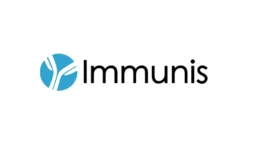 Immunis Begins Clinical Trial of Stem Cell Secretome: Intending to treat sarcopenia, the private biotechnology company Immunis has begun a human clinical trial of a stem cell secretome product that affects the immune system.
Immunis Begins Clinical Trial of Stem Cell Secretome: Intending to treat sarcopenia, the private biotechnology company Immunis has begun a human clinical trial of a stem cell secretome product that affects the immune system.
Gero Enters Research Collaboration with Pfizer: Gero announced that it has entered into a research collaboration with Pfizer to apply Gero’s machine learning technology platform to discover potential therapeutic targets for fibrotic diseases using large-scale human-based data.
 Introducing A Longevity Hackathon for Accelerating Research: The latest hackathon event, LongHack, hosted by the VitaDAO team, focused on discovering new approaches to longevity science and inspiring new initiatives in the field.
Introducing A Longevity Hackathon for Accelerating Research: The latest hackathon event, LongHack, hosted by the VitaDAO team, focused on discovering new approaches to longevity science and inspiring new initiatives in the field.
Allogeneic CAR-T Cells Complete Phase 1 Trial: The results of a Phase 1 clinical trial of allogeneic CAR T cell therapy against multiple myeloma, a cancer of B cells, have been published today in Nature Medicine, and they appear to be promising.
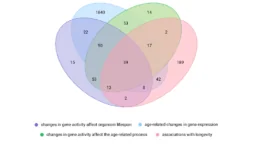 Open Longevity Foundation Announces Open Genes Database: Open Longevity Foundation has announced Open Genes, a database of longevity-associated genes and a tool for future anti-aging therapy development.
Open Longevity Foundation Announces Open Genes Database: Open Longevity Foundation has announced Open Genes, a database of longevity-associated genes and a tool for future anti-aging therapy development.
Longevity Investors Lunch at Davos: A Longevity Investors Lunch hosted by Maximon, Longevity Investors Conference, and Biolytica has been hosted at a satellite event of the well-known Davos World Economic Forum (WEF) conference.
 VitaDAO Closes $4.1 Million Fundraising Round: VitaDAO, a decentralized organization funding early-stage longevity research and biotech start-ups, has announced the successful closing of a $4.1 million funding round dedicated to financing future longevity projects and furthering its commercialization and licensing strategy for IP-NFT assets.
VitaDAO Closes $4.1 Million Fundraising Round: VitaDAO, a decentralized organization funding early-stage longevity research and biotech start-ups, has announced the successful closing of a $4.1 million funding round dedicated to financing future longevity projects and furthering its commercialization and licensing strategy for IP-NFT assets.
Coming Up
Longevity Nation – Enhancing Research, Development and Education for Healthy Longevity: This conference will explore the interdisciplinary interrelations of science, technology and society in addressing the challenges of population aging.
2023 HEALinc Future Health Summit: The 2023 HEALinc Future Health Summit, being held at the Atlantis Resort, Paradise Island, the Bahamas, is focused on shifting the paradigm on healthcare, pushing through bureaucratic hurdles and obsolete concepts in order to promote regenerative medicine and human enhancement technologies that can meet the world’s health needs.

